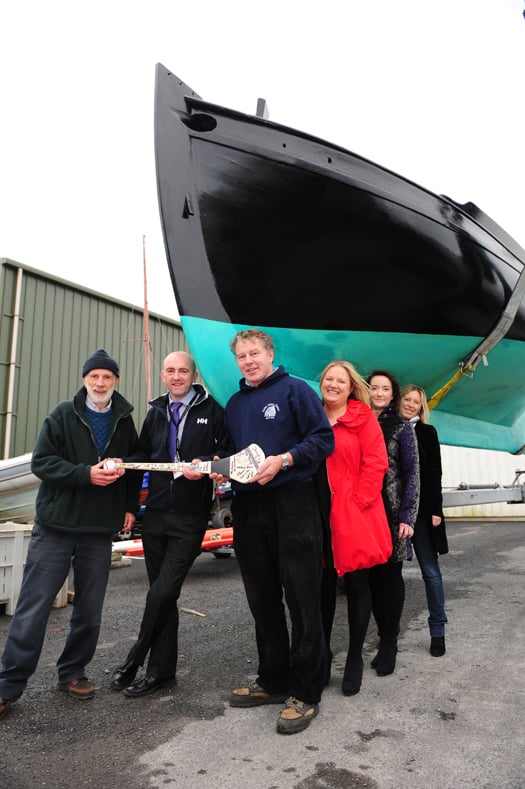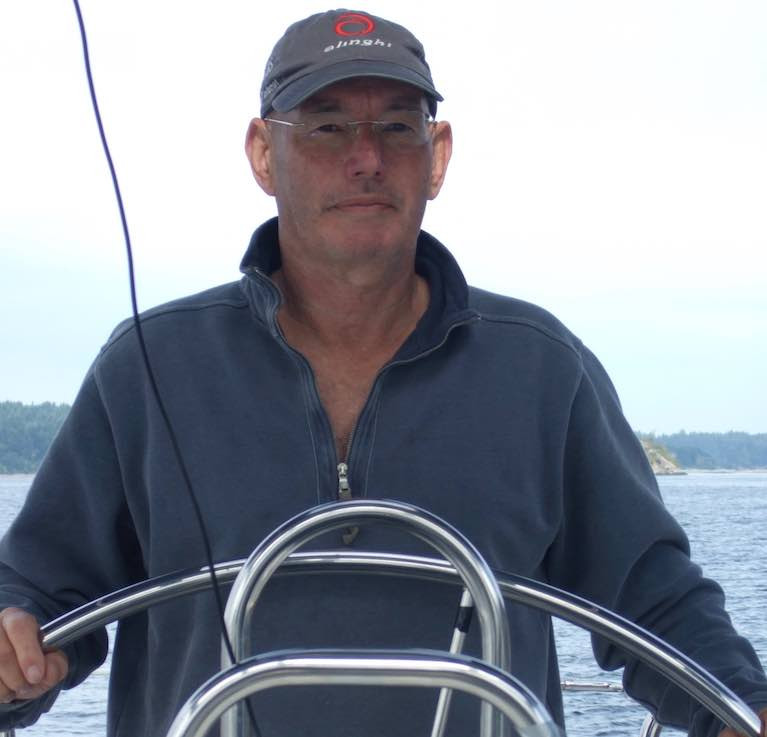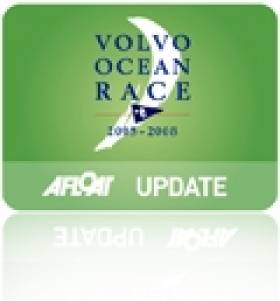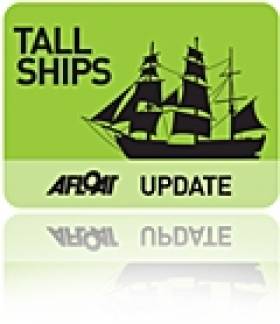Displaying items by tag: Peter Vine
Peter Vine Scientist, Author & Film Producer - Podcast
Octopus fishing in Tarawa, accidentally sinking a Royal Navy RIB, monitoring the Loch Ness monster and deep diving to 287 feet...
That’s just a small taste of adventures experienced by scientist, author, and film producer Peter Vine, who lives in Clifden, Co Galway with his wife Paula.
His many adventures have been recorded in his new memoir, entitled Spirorbis, named after a tiny tube worm which he researched, which has been published by Artisan House.
Vine, adjunct lecturer at NUI Galway, has spent a lifetime travelling and working in over 30 countries, experiencing many cultures, and diving in many waters.
 The Malo 45 Suaimhneas which Peter and Paula Vine sailed
The Malo 45 Suaimhneas which Peter and Paula Vine sailed
He has been a senior scientist on a joint British-Saudi Fisheries Development Project; director of Suakin Marine Laboratory and founder of Ardbear Sea Farms; managing director of book publishing and film production companies FQC Media and Trident Press Ltd; and project director for the UAE Pavilions at four world expos.
 A Red Sea sambuk crewed by Yemeni sailors sailing past Vine in Sudanese waters
A Red Sea sambuk crewed by Yemeni sailors sailing past Vine in Sudanese waters
Latterly, he has focused on his marine research and writing on conservation of fragile areas such as the coral reefs of the Red Sea.
Close friend and fellow adventurer Doug Allan, wrote the foreword to Spirorbis. Allan is one of the world’s best known and respected cameramen, capturing the natural history of some of the wildest and most remote places on our planet.
 Peter Vine eating a banana in between dives at Mesharifa reef in Sudanese Red Sea Photo: Doug Allan
Peter Vine eating a banana in between dives at Mesharifa reef in Sudanese Red Sea Photo: Doug Allan
He has worked for BBC, Discovery, National Geographic and many others on series including The Blue Planet, Planet Earth, Life, Frozen Planet, Ocean Giants and Operation Iceberg.
In 2012, Allan published Freeze Frame – a Wildlife Cameraman’s Adventures on Ice, a book about his filming experiences.
Vine was diagnosed with Parkinson's Disease in 2015 and writes of how he was fascinated to discover that the technology that has saved the lives of so many scuba divers, as in hyperbaric oxygen therapy, is now being used to treat people like him with various conditions.
50% of proceeds from the sale of Spirorbis will go to support the work of The Dublin Neurological Institute at the Mater Hospital. Vine and Allan spoke to Lorna Siggins for Wavelengths, the new weekly podcast on news and views from the Irish coast for Afloat. Thanks to Connemara Community Radio for assisting with the recording.
Listen to the podcast below
More details on Spirorbis can be found on petervine.com
Galway Hooker En Route to Abu Dhabi in VOR Cultural Exchange
A traditional Irish sailing boat is on the way to Abu Dhabi in a cultural exchange that will also see six Arabian dhows in Galway for the finish of the Volvo Ocean Race next summer.
The National reports that the near-century-old Galway hooker Nora Bheag is being transported to the United Arab Emirates as part of a Maritime Heritage Cultural Exchange initiative, co-ordinated by Irish expat Peter Vine. (Track its progress at marinetraffic.com.)

On her way: Nora Bheag heads for Abu Dhabi. Photo: Boyd Challenger
According to the Galway Independent, the boat is currently en route to Rotterdam in a container loaded with a small curach named Noa.
Plans to include turf and bottles of poitin were abandoned, however, due to customs concerns - instead two hurleys and a sliotar will make the trip.
Nora Bheag is expected to reach port by early December ahead of the Volvo Ocean Race fleet which arrives on 1 January, marking the first time the city has hosted and taken part in the race.
Vine says he came up with the idea of the boat swap because of the two countries' shared maritime heritage.
There are many similarities between hookers and dhows, too, from their comparable sail shapes to their usage for fishing and personal transport.
"This will be a huge common shared experience that will build true friendships and a real cultural exchange," said Vine. "I am hugely grateful to Emirates Heritage Club, which has done so much to revive Arabian dhows, for making such a project possible."
The National has more on the story HERE.
Meanwhile a delegation from Galway is set to travel to Spain later this week for the launch of the Volvo Ocean Race.
A week of events begins this Saturday ahead of the start of the race proper on 5 November in Alicante.
Ireland 'Can Benefit from Nurturing Sailing'
Two recent letters in The Irish Times serve as a "reminder of the high value of sailing to the social and economic health of Ireland".
Enda O Coineen - who helped bring the Volvo Ocean Race to Ireland - writes on Saturday last of the "shame" of becoming "quayside bystanders" that many felt welcoming the Norwegian tall ship Statsraad Lehmkuhl to Dublin when Ireland's youth ocean sail training scheme is being ended due to a 100% budget cut.
Echoing his sentiments, Peter Vine asks: "Is it not time to acknowledge that this maritime nation can benefit enormously by nurturing sailing and a love of the sea among our young people?"
Vine argues that efforts towards a "new viable Tallship for Ireland deserve individual, corporate and Government support". Do you agree? Have your say in the comments below.


























































